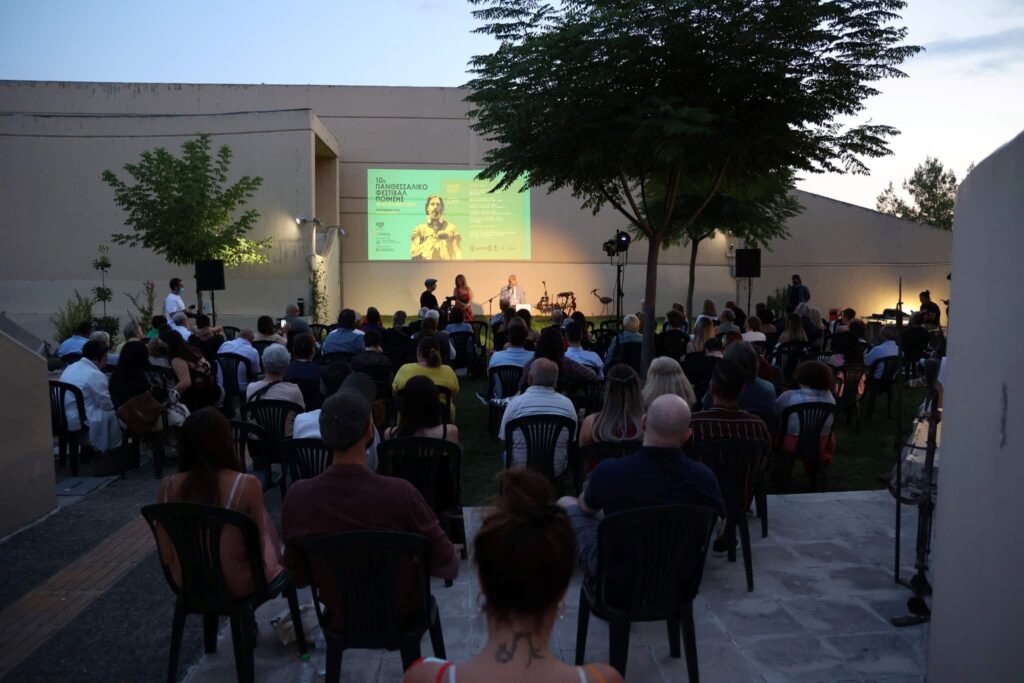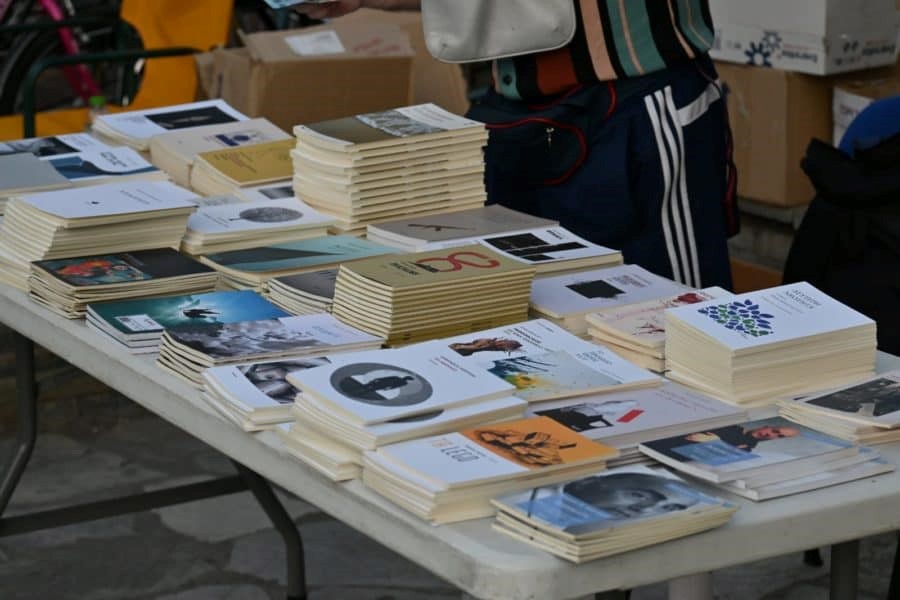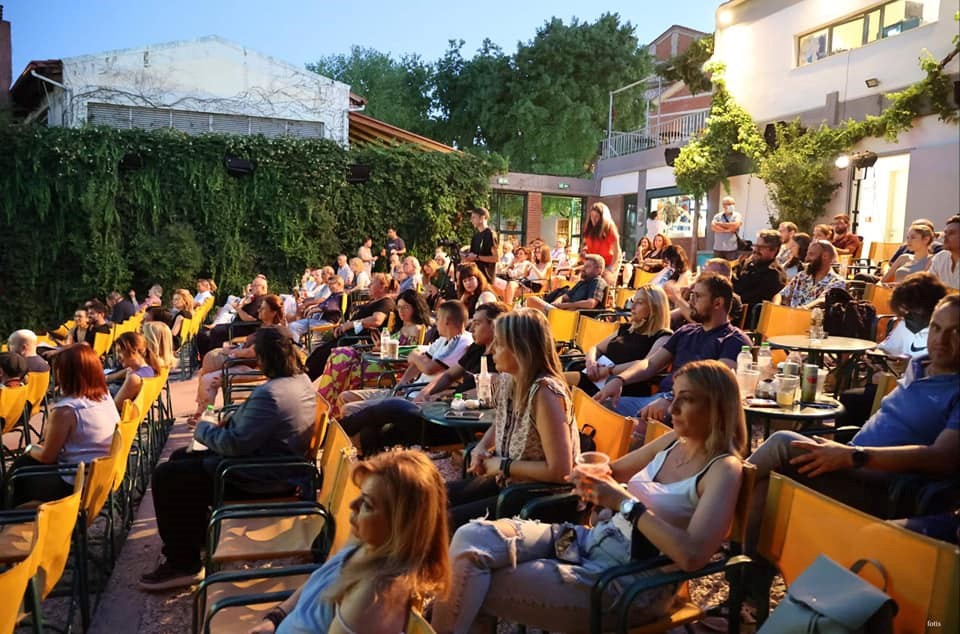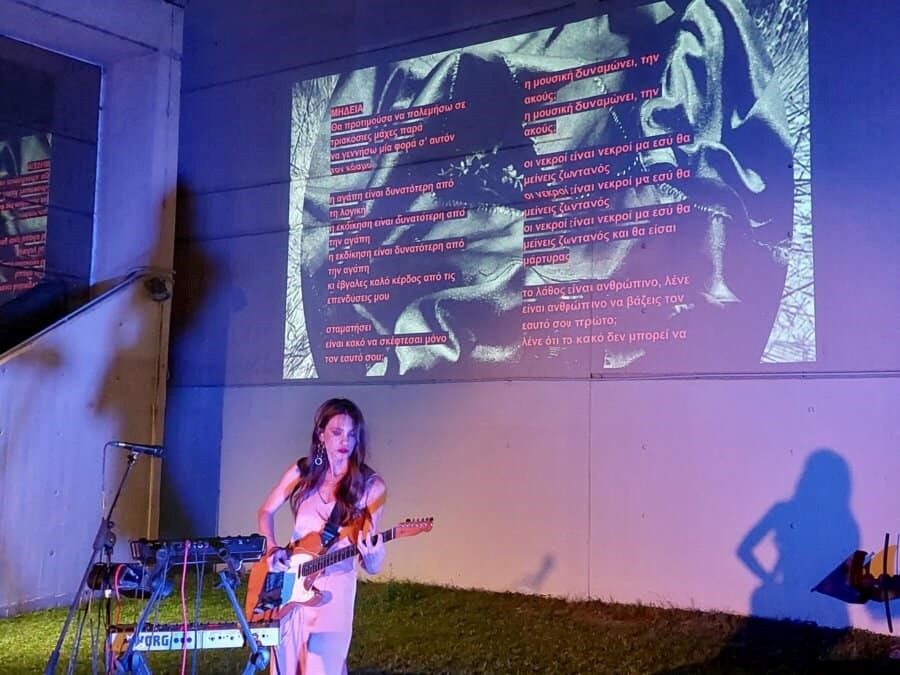18 Jan Environment and Poetry
be Eleni Laki

The 10th anniversary Thessalian Poetry Festival took place from 18 to 22 July in Larissa, Volos, Trikala and Karditsa with the participation of poets from Greece and abroad. The festival is organized by Thraka (a civil non-profit company) – with director Thanos Gagos and deputy director Marija Dejanovic – and the Mayoralty of Culture & Sciences of the Municipality of Larissa, as well as with the support and under the auspices of the Ministry of Culture and Sports and the Region of Thessaly.
This year the theme of the Festival, around which the participants drew inspiration, was nature, one of the parameters of the poetry of Christos Diamantis, teacher, musician and poet of Thraka, who passed away in December 2021. In fact, the entire festival was held in memory of this remarkable man and artist.
The remarkable thing about the Thessalian Festival is, on the one hand, the platform it gives to young poets, following the establishment of the Thraka Prize already in 2020, which gives poets the opportunity to publish their first poetry collection and, on the other hand, the communication channel it creates between notable artists from Greece and abroad. This year in particular, 70 Greek and 12 international poets participated.
After its completion, various thoughts are floating around in my mind, such as how art can play an essential role in the awakening and constant vigilance of citizens regarding one of the most basic commonalities that connects us, our relationship with public space. So where does politics end and environmental consciousness begin? It would be safe to say that they cannot be separated from each other.


An insignificant aspect of our conscientious citizenship is how invested we are in the relationship between ourselves and our surroundings. This is because we tend to be blind to the transparent boundaries of private and public property, to the transition from one to the other through reckless or abusive behaviour, through the levelling of concepts such as public space, common space, protected area, all of this always driven by our egocentric view of the world.
A short-sighted tactic is usually adopted whereby everything that takes place away from people’s very existence and from the narrow or wider confines of their property ceases to concern and influence their actions. How, therefore, can we motivate people to mobilise and create positive practices at a time when global climate change is taking shape before our very eyes, and scholars are now discouraging the possibility of a possible recovery following even massive efforts on the part of citizens (lifestyle change, ecological awareness)?
Somewhere there, on the cusp of resignation and faith in something that seems impossible on an individual level, art takes on its role. At first, any change impelled by it seems utopian. Poetry is there to remind us of where we come from, to take us a little out of the focus we have set on ourselves by making us think about all the lives we risk in our path for our own survival. Just as a citizen cannot live unaffected by decisions made on behalf of citizens and remain inactive in the face of those that will affect his or her quality of life, he or she similarly cannot live indifferent to the changes that are taking place in the natural environment that make him or her a virtual spectator to the continuous degradation of his or her place. It was in such a climate of deep awareness, sadness and reflection that we met during the week that the festival unfolded and renewed our appointment with an increased will to revise, with a need for a change, at the same time as we were informed by our receivers about the new fire fronts in our country.
In closing, I quote a poem by Christos Diamantis from the poetry collection “Simplicity” (written in Greek).
πράσινη ανάπτυξη
κάποια στιγμή σκέφτηκε
έχω γράψει πολλά τραγούδια
και ο κόσμος τα βρίσκει ωραία
και ένα-δυο (δεν μπορεί)
θα μείνουν στην καρδιά του απλού ανθρώπου
και θα τραγουδιούνται για πάντα
ειδικά αυτό το
πουλί θα γίνω και θα ’ρθώ πάλι κοντά σε σένα
εε τι στο καλό, αυτό θα έμενε
και ύστερα
το άκουσε από το βάθος μια ανεμογεννήτρια γελούσε (δυνατά)
The photographic material belongs to the photographer Fotis Natsioulis.





No Comments